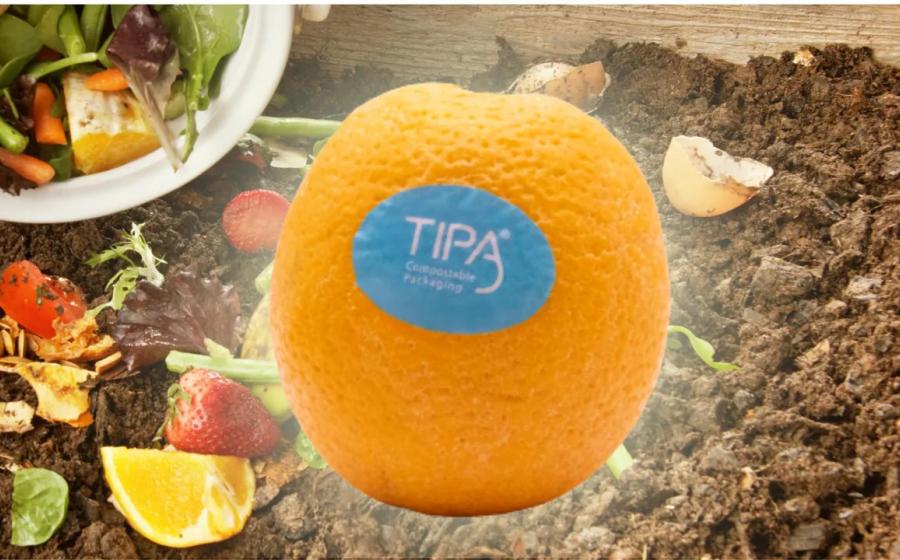
TIPA Compostable Packaging has introduced a certified home-compostable label for fresh produce. The labels are food-safe, durable in cold and moist conditions, and compatible with existing label printing and application methods. The labels result from TIPA’s collaboration with its subsidiary Bio4Life, a supplier of home-compostable adhesives.
This innovation aligns packaging with emerging global policies requiring compostable labels and supports zero-waste goals. This applies just to consumers and brands, but composting facilities, for whom produce stickers are among the top five most persistent contaminants in their facilities, often showing up in finished compost.
Designed primarily for fresh produce, these fruit and vegetable stickers are a fully compostable solution that aligns with the new PPWR regulation in the European Union, where compostable labels on fruits and vegetables are to become mandatory.
These labels address the issue of conventional plastic produce stickers, which are a major contaminant in compost and contribute to microplastic pollution. The labels offer elasticity and adaptability to adhere to various and sometimes-challenging fruit and vegetable skins, including oranges, grapefruits, lemons, bananas, avocados, eggplants, zucchinis, cucumbers, beets, watermelons, apples, pears, mangoes, and more.
Applications also go beyond produce: The labels are also suited for use as packaging labels (PLUs, ingredients, branding, barcodes) for all types of food, and they can also serve as closures for food and fashion packaging.
Additionally, the labels feature excellent moisture resistance and remain durable and flexible across various storage conditions, including room temperature, refrigeration, and freezing. These stickers are designed to prevent black marks or discoloration that sometimes occur on produce after using conventional labels, maintaining a clean, consumer-friendly appearance.




